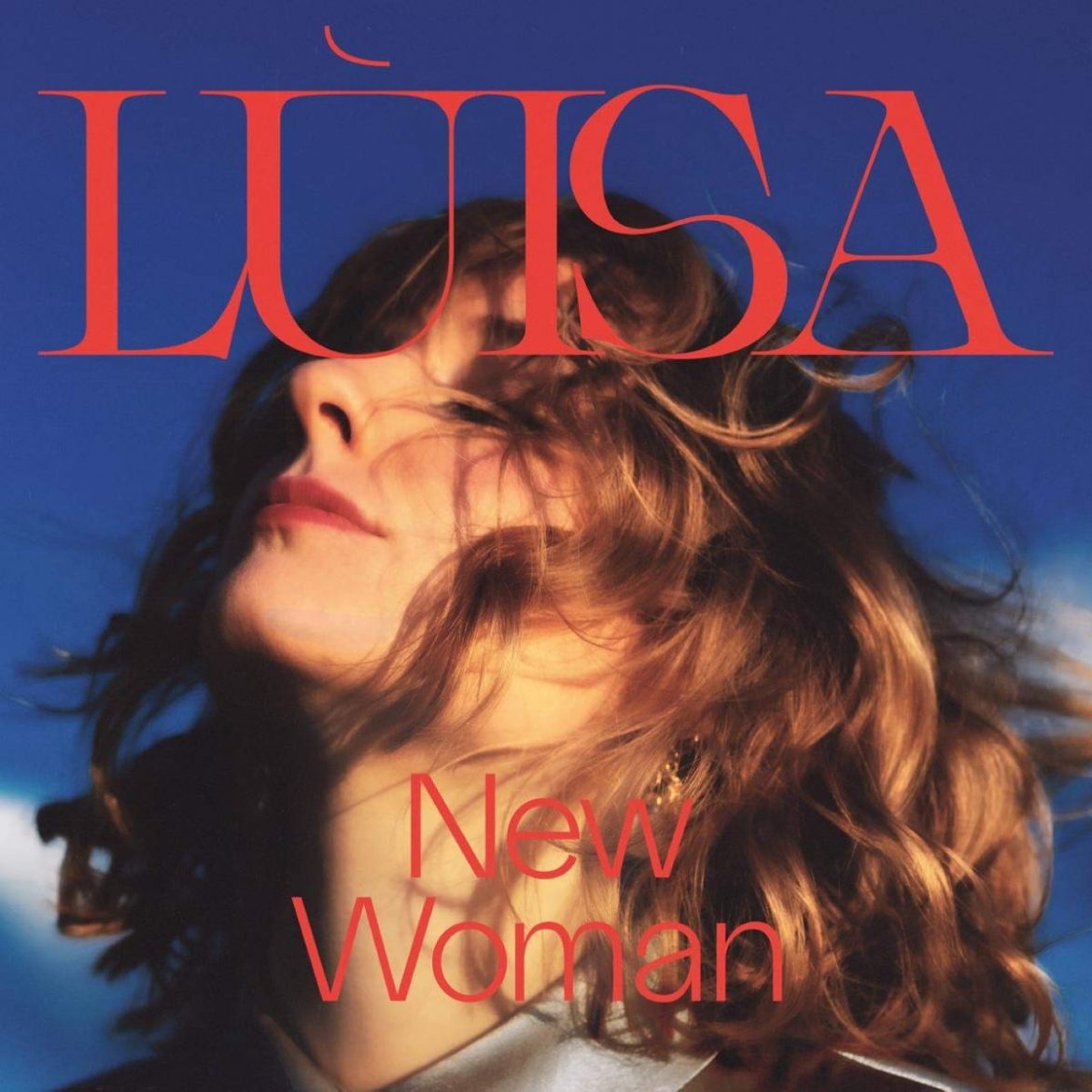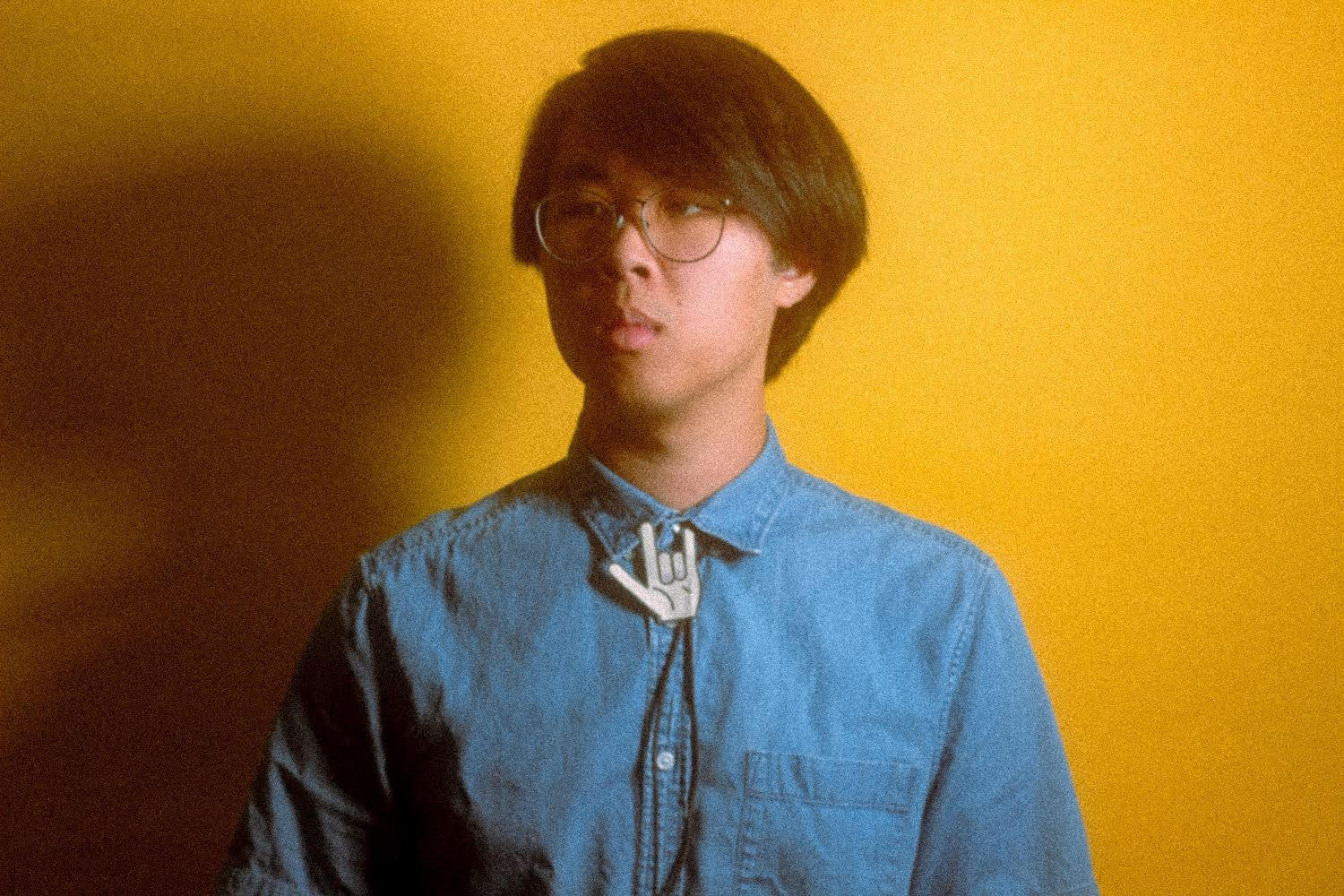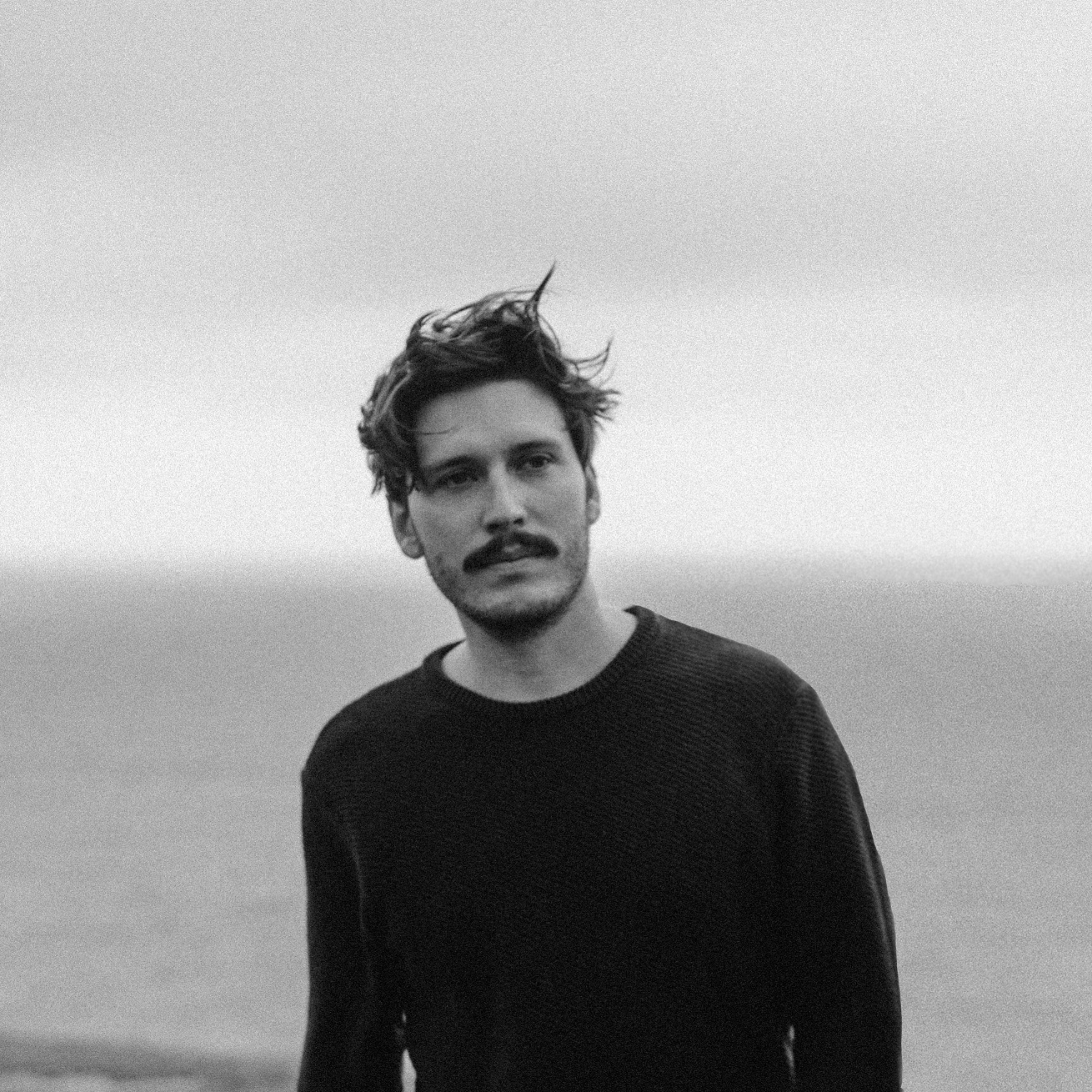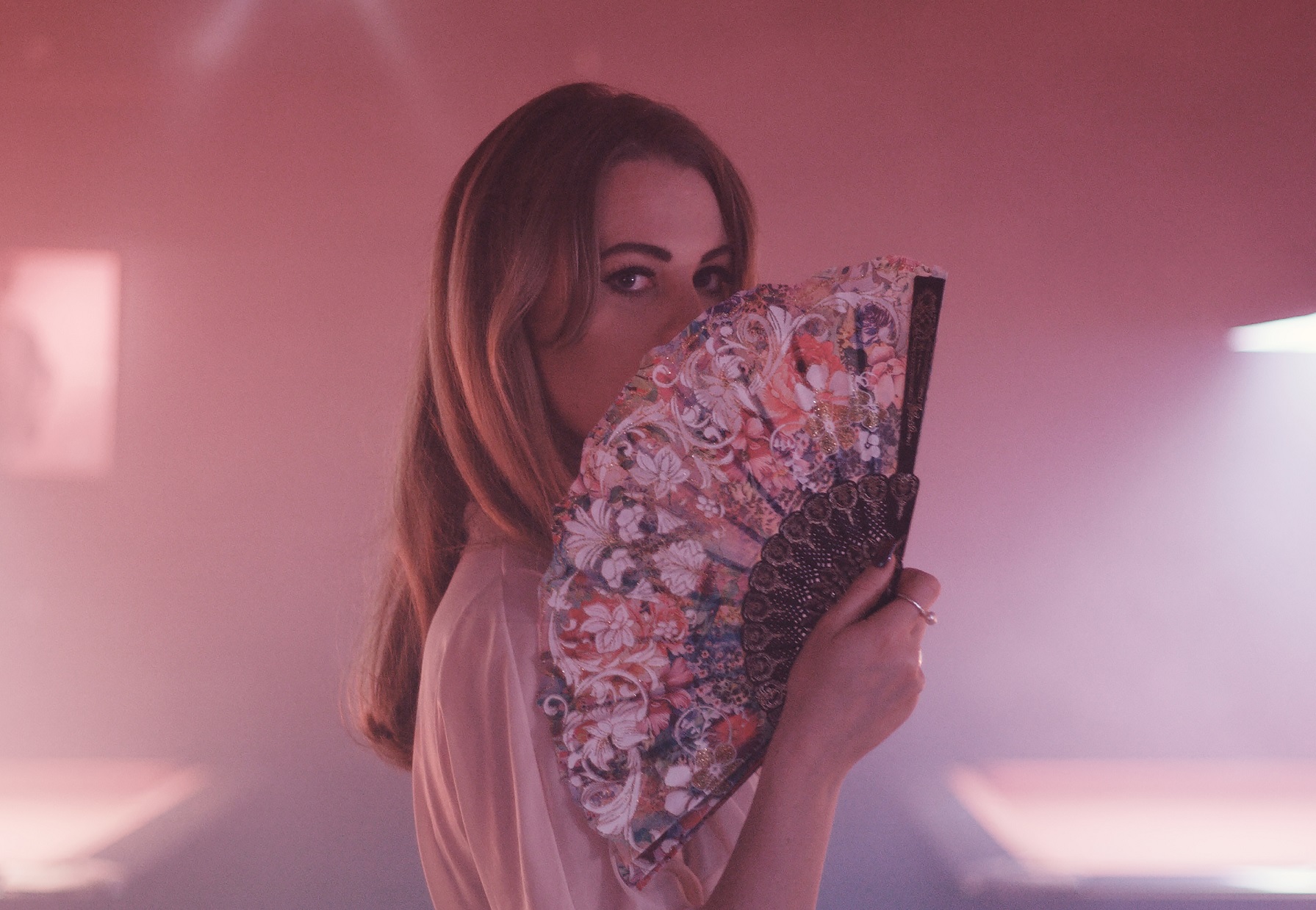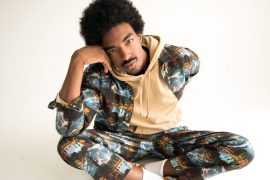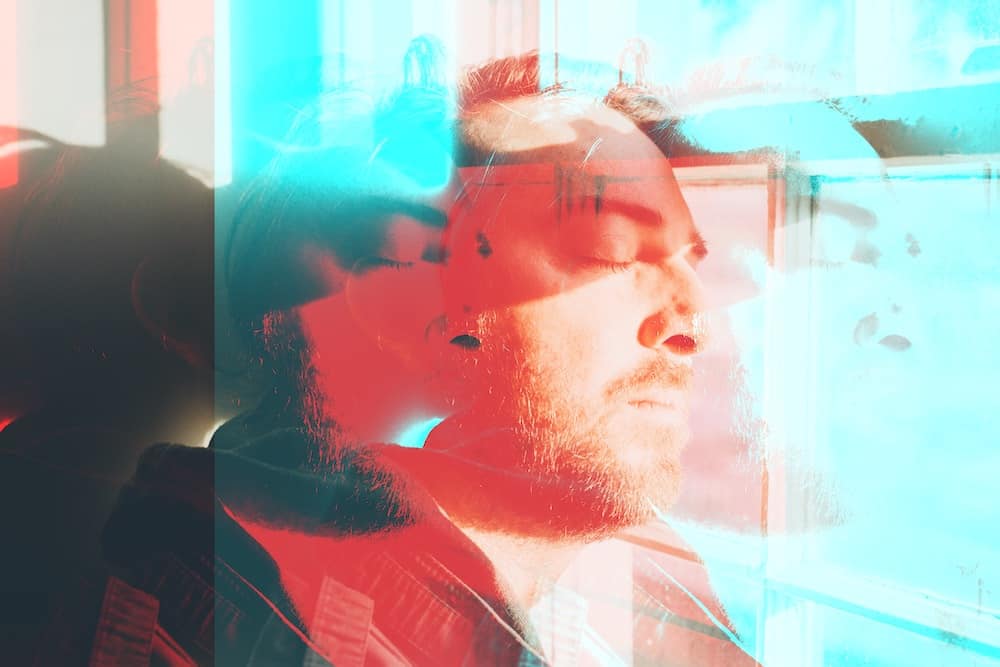German indie pop artist Lùisa speaks to us about her journey of processing grief and finding a new voice on her dazzling third LP ‘New Woman,’ a soaring and stirring soundtrack to personal growth and inner reckoning.
Stream: “New Woman” – Lùisa
Soaring and stirring, Lùisa’s recently-released third LP is a radiant inner reckoning. The throes of life come to bear in dazzling, excitingly expressive and emotive music on New Woman, a resonant indie pop journey through grief and loss, womanhood, personal growth, and self-empowerment.
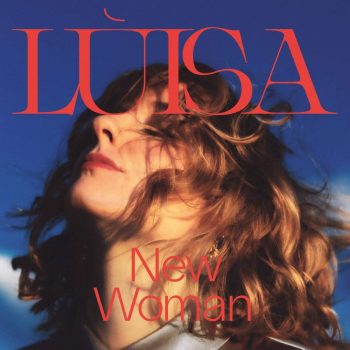
And I’m moving in the desert nights
And I’m climbing high, could have fallen twice
but all inside of me is moving towards the light
I feel like a new woman
And I’m moving on, leave the past behind
raised underground for the longest time
all inside of me aims to cross the lines
I feel like a new Woman
Released May 7, 2021 via Nettwerk Music Group, Lùisa’s third album New Woman arrived this spring a full six years after her sophomore record, Never Own.
“It was a long journey, but I think I had the chance to grow out of these experiences which were painful and sad,” the indie pop artist says of the span of time. “There were some years where I felt, ‘Am I going to release a new album?” I always wanted that, but there were so many challenges… I learned to express myself more independently, and I learned a lot about production and about my own sound and my own vision and how to put it out there. It made me more independent in a way, and also I think more resilient. Everyone is facing challenges and darker times in their lives, so I think for me to grow out of these experiences was a major part to actually be able to put it out there now as a record.”
One of Atwood Magazine‘s 2021 Artists to Watch and hailing from Hamburg, Germany, Lùisa has been actively releasing music for the better part of the past decade, starting with her debut album One Youth Ago in 2013. The producer, guitarist, songwriter, and singer signed with Nettwerk to release her 2015 sophomore LP Never Own, and while it’s been a long time since her last full-length release, Lùisa’s growth and artistic maturity have been immediately apparent in all of her new material – where social activism, grief, and resolve resonate through visceral pop of the highest order.
“The record is about fighting, never giving up, and rising again even after the hardest of times,” the artist shares. “For me, the album writing process has been an extraordinary journey and a form of empowerment. I hope this LP will provide hope and inspiration for self-empowerment to all listeners in these challenging times.”
For the profound emotional depths reached in Lùisa’s songwriting – much of the record explores her processing the loss of her brother, alongside her own concurrent obstacles as a young woman navigating the music industry – New Woman is an impressively dynamic collection. Inspired by what she calls “live grooves” and working with Berlin-based producer Tobias Siebert, Lùisa – who handled all the writing, arrangements, and pre-production – crafted a dramatic, enchanting sound that pairs ’70s and ’80s Fleetwood Mac / Sade influences with the sounds of more recent, contemporary acts like The War On Drugs and Christine and The Queens.
“It’s the first record that where I knew how to get to a certain sound because I dived deeper into music production,” Lùisa says, going on to describe her present sound as “having a lot of live grooves and very straight backbeats going on while at the same time, having super airy synths and the ’80s vibes that come from certain guitar sounds and the chorus and reverb-y sounds. I think I had to build a new little universe around these songs.”

From the intimate, intense churn of opener “Deep Sea State of Mind” and the cinematic pulse of “By Your Side,” to the shimmering guitars and smoldering, heavy beats ricocheting throughout “Walking Home with a Lover” and “Burn Out,” to the hot-on-the-mic warmth and vulnerability of album closer “To Let You Go,” New Woman is an entrancing, immersive experience.
Highlights abound, but one resounding standout is the album’s inspiring and impassioned title track “New Woman,” a dynamic and bold outpouring driven by a passion for equality and upheaval.
“‘New Woman’ is my anthem for empowerment and change,” the artist tells Atwood Magazine. “The song is about fighting the rules of patriarchy and taking the stage for equality. It’s about challenging our inner binary beliefs and breaking the caging patterns of stereotypes that wound our souls. I discovered the movements of intersectional feminism as highly relevant in my own life – they gave me strength and inspired me for solidarity. I’ve had many tiring experiences with sexism and the disadvantages that go with working as a female artist in a still male-dominated music industry. And I know so many women still experience greater inequality and gender hierarchy every day. We need to push for change! I hope this ’70s-inspired disco song brings joy, hope, and empowerment when you need it the most.”
Lùisa she shines with a uniquely stirring, special light on “New Woman”: She embraces a revolutionary spirit while commanding the spotlight, her words as personal as they are universal in ushering in a spirit of optimism and hope for a brighter tomorrow:
Change
Breaking My Cage
Making Mistakes
Taking my Stage
Feel like a New Woman today
Change
Breaking My Cage
Making Mistakes
Taking my Stage
Feel like a New Woman today

Still, this is just one of the eleven emotionally arresting, sonically grooving songs that give New Woman is undeniable charm. Lùisa’s third album is a multifaceted triumph that finds the artist not only tackling women’s rights and the act of finding your voice and speaking up, but also dealing with deeper issues of grief, loss, inner and external pain, and trauma.
Lùisa recently spoke to Atwood Magazine about New Woman and her journey of processing grief and finding a new voice. Dive into the thrilling depths of the artist’s singular third LP, out now via Nettwerk Music Group.
— —
:: stream/purchase New Woman here ::
Stream: “New Woman” – Lùisa
A CONVERSATION WITH LÙISA

Atwood Magazine: Lùisa, your record has been such an exciting one to listen to from the very start. I was very moved by the title track “New Woman” earlier this year, so it's nice to be connecting with you now. Where are you today?
Lùisa: Thank you, I’m really happy you liked the album! I’m based in Hamburg, but I’ve been recording the album in Berlin. And it’s just one and a half hours, so I kind of swap cities. But at the moment, and during the pandemic, I live in Hamburg again. I sort of I got used to it in a very weird way, like everybody else.
It was a great coincidence in the beginning that I could really focus on recording that album and I could dive deeper into making this, but now, a year has passed and we all long for some sort of normal life and getting back on the road and playing shows. It gets more frustrating, but now we can hopefully… in some months, something will move.
Fingers crossed! Your third album, New Woman, is a very long time in the making. Can you share a little bit about the story behind this record?
Lùisa: It was a very long journey, and I really needed to take some time to channel some of my experiences creatively, because I had faced some dark times, for sure. I had lost a very close family member: My brother died in an accident, some years ago already, but it took me a long time to kind of get my own path going again and to channel all this. This was a huge part of the whole album and the whole story. On the other hand, it was not only about grieving and finding a way to connect with life again after I had lost a lot of trust in life, but at the same time, it was a phase in my life where I, as a young female artist, faced challenges on my career path as well, so there was the personal side of the story, which I think some people can relate because of grief, and losing someone is something that can happen to anyone – it’s a very personal approach. But on the other hand, there were a lot of experiences that kind of slowed me down on the professional side because I honestly had some weird experiences with producers and finding my own voice again, and trusting again with a creative team. So these were the main parts, finding my own way as a woman and female artist, and then grieving – so lots going on.
There's so much to unpack there and I hope you get through it. You released your last album Never Own in 2015. How do you feel you've grown in the six years since then?
Lùisa: I think I am a completely different person now. It was a long journey, but I think I had the chance to grow out of these experiences which were painful and sad. And there were some years where I felt, “Am I going to release a new album?” I always wanted that, but there were so many challenges. I hope it doesn’t sound too cliché, but they kind of put me back on track and put me in the position where I can say I learned from these challenges, because I learned to express myself more independently, and I learned a lot about production and about my own sound and my own vision and how to put it out there. It made me more independent in a way, and also I think more resilient.
Everyone is facing challenges and darker times in their lives, so I think for me to grow out of these experiences was a major part to actually be able to put it out there now as a record.
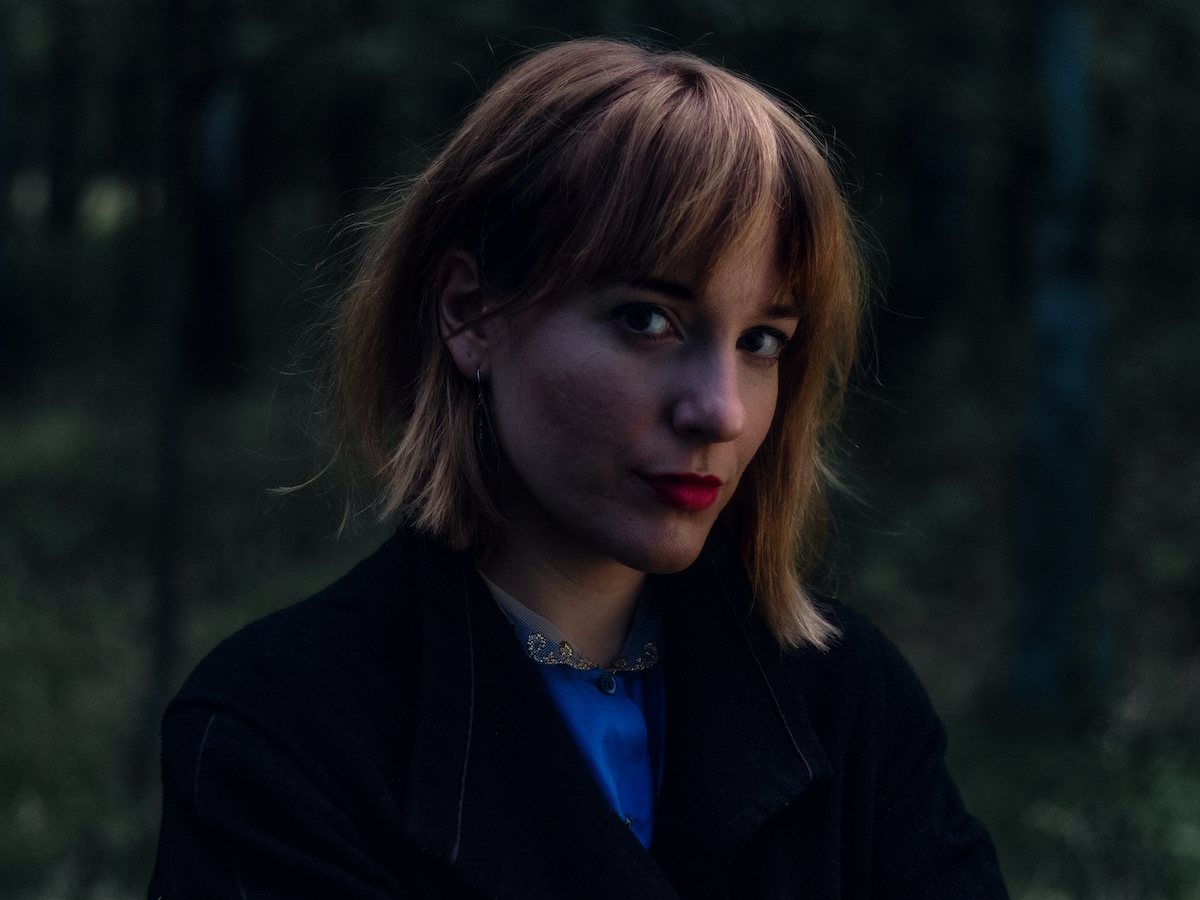
Obviously, there was so much emotional growth that you've already talked about in this time that affected the record. How about musically? Where do you see your journey musically in those six years: When you just listen to the music on this new record, how do you feel it's different from your first two?
Lùisa: So I think all of the three records are very different musically. So the first one was me getting to know songwriting and I was just writing some songs on acoustic guitar so it’s folky and maybe even freaky folky. And then the second one is more inspired by electronic music and some Indie bands. And then this one was a lot about groove, I think. And I was very much inspired by live grooves more and moved away from the electronic soundscapes that I worked with on Never Own. I think also it’s the first record that where I knew how to get to a certain sound because I dived deeper into music production. And I would say having a lot of live grooves and very straight backbeats going on while at the same time, having super airy synths and the ’80s vibes that come from certain guitar sounds and the chorus and reverb-y sounds. I think I had to build a new little universe around these songs and I would describe them with those features.
Tell me more about your production that you learned – how much of the album did you self-produce?
Lùisa: I would say… I did all the writing myself and also the arrangements. I would say that I did all the pre-production, but I had some great friends who helped me with the grooves because I always knew the basic structure of a groove, but it’s so amazing if people who actually play the instruments help you with evolving the groove and building patterns that are really catchy. So I hired two friends and we recorded some of the stuff in the rehearsal room, but it was all in my… It all came back to my project where I arranged everything and took notes and I had… As I mentioned, I had the experience that it was annoying to do that in the studio, so I was super controlling and obsessed with having every check super prepared before going to the studio in Berlin. So I would say I did 80% or 85% of the work myself, and then it was still a huge difference when we actually recorded and engineered, properly engineered the album because I think recording drums that’s none of my business. I’m happy to arrange and compose and be creative about those parts, but I’m happy if someone is competent with compressors [laughs]. But it was a big part of that, to actually do most of the work myself and be very precise about where I want to go, because any time that I had experienced different things were weird.
It sounds like this was really a very thought-out process for you when you were ready to get back into the studio. What was your vision going into this record, and did that change over the recording process?
Lùisa: No, it actually didn’t. I have this vision in my mind and it was there for a long time, I just… In the beginning, I did not know how to realize this vision technically, and I didn’t know how to describe it with technical terms. And then I also had some… I didn’t find the right people in the very beginning. But I knew what I wanted, it was just like getting there took a longer time. And then by the time that I went to the studio, I was able to be very precise with the producer. And he is such a great guy because he put back his ego and he was like, “Yes, I will… I will do what you say, but I also… ” But also he brought in so many great ideas. So I think the combination, in the end, was very great.
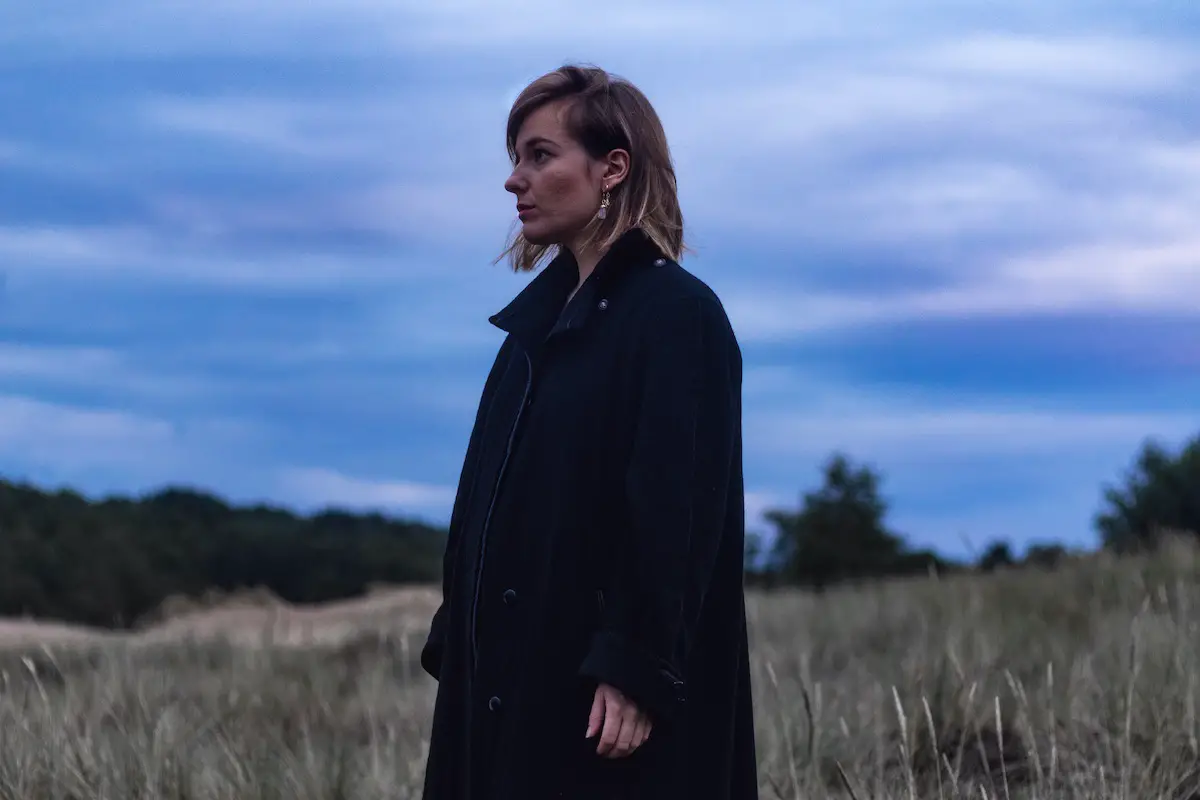
So once you did find the words to describe that vision, what would you say those words were?
Lùisa: On the musical level, I think there were definitely a lot of ’80s references in my vision, and still a bit more modern in a way and very groove-oriented. For the subject matter, I wanted to describe a journey of grieving and getting back on track, so I wanted to also find a sound to represent that. In “Deep Sea State of Mind,” for example, it was very important for me to have the lyrics that reflect the sound. So in a way, it’s an ’80s, picturesque, groovy, synth-oriented pop record.
You mentioned “Deep Sea State of Mind,” which when it released was your first song in three years. It’s also the album’s first track. Why introduce and start the record with this song – what makes it the right opener for you?
Lùisa: So on the one hand, I think it kind of connects with the older soundscapes that I have on Never Own and still it introduces some new features of the musical style as such, there’s like more groovy drum patterns. And so this is… On a musical level, I thought it was a great connection to the older stuff. But then for… It’s also for the whole journey of the record on a meaning… On the meaning side, I felt that it was great to just dive right into that feeling of isolation and being super lost and kind of also make it like… Explain a little bit maybe, why I was gone for a longer time. And that journey kind of starts with feeling very disconnected. So that kind of diving deep part was a great way for me to open the whole journey.
It’s never been like that
I’ve been chasing my own head
for a long long time
You better be who you want to be
let their eyes rule over me for a long long time
The age of alienation
I let myself sink in
I couldn’t tell wrong from right
Moving past dictation, I let myself sink in
’til I have reached my Deep Sea State of Mind, where I’ll
Never be hurt, never be hurt again I’ll never be hurt, never be hurt again
Saving my soul locked in a diving bell I drift in silence
Never be hurt, never be hurt again I’ll never be hurt, never be hurt again
Saving my soul locked in a diving bell I drift in silence
I understand. I really loved writing about the song “New Woman” earlier in the year. I understand the album is named as at least some sort of homage to that song and its significance. Can you share more about what that song means to you?
Lùisa: Oh, it means a lot, because it was one of the first songs that I actually had written from the album. But it took such a long time to find its sound, and that was one of… That’s a great example of that long journey that I had to take to find the sound that I wanted. So I felt it was the right name, just because of that also because the whole journey started with “New Woman” and it kind of… Now, it kind of ends and concludes with “New Woman.” And also in that time of the whole… You know, in this time, when I wrote the album, I educated myself so much more on feminism and it was also with… Not only with the Me Too movement, which came up from 2017 on, but also with my own experiences through that lens in the music industry. And it also captures these two sides of the album. The personal one of always having some sort of goal to be a new woman after you came from a lot of old pain and stuff from the past. And then have that other side of female empowerment and being very precise about your vision and work hard to get there. So I thought that was a good title track. And of course, everyone says it’s the most catchy song. So I was like, “Oh, well, we have several reasons here.”
Are you the new woman being sung about?
Lùisa: I think it is a part of me, definitely. And it feels like it is a goal I want to achieve every day to be fearless and to be, just very brave. And we can’t always be like that of course, and it’s cool and we don’t have to. It’s also great to be grieving on some days and to be a complete mess, but some days it’s great to be a new woman. I feel she’s my goal most of the days.
It's like that song, that archetype is a reminder of who you want to be, like your ideal self-image.
Lùisa: Exactly. Also musically, it’s very different from what I’ve done before, so it is kind of disco-esque and it felt very exciting to put it out there, because it’s not as airy and indie. Also, it’s a reminder to sometimes think out of the box, and so this is reflected through the music as well, for my own music journey.
I think of that song as really self-confident – of fully owning your person, who you are and who you're going to be, and knowing exactly what you're going to be putting out there.
Thank you for sharing all of that. Do you feel that you are the narrator in your music?
Lùisa: I am the narrator – it is personal. And a lot of the songs deal with my own journey, but I also exaggerate the feelings. And it’s still in a way a narrator, that is… It is not my private self, it is still… There’s still some artificial universe that I’m creating.
Two songs that I was really moved by are “I Forgive You” and “Long Lost Friend.” “I Forgive You” felt like a particularly powerful, poignant moment on the record. Could you share more about what that song's about?
Lùisa: It is about forgiving a family member who has struggled with addiction. And I talked to a lot of friends about that, and I feel that so many people struggle with that story and it’s still such a taboo. And that to me it was quite important to put it, and channel it, to put it out there in this song, and to be aware that humans… I call it “humans” because they make mistakes, and because they struggle and they try to find a path. And to have that perspective on people, to understand why they became the way they became is a big part of growing up and becoming an adult. And so I think that’s what this song is about, to actually find peace with your own story and your own… And also the struggles of your family.
I also really love your songs “Walking Home with a Lover” and “Burn Out.” Both have a very '80s vibe, with such cool sonics, shimmering guitars, and heavy beats in the background. Can you tell me more about these songs?
Lùisa: We’re actually planning videos on these songs right now, so we have something going. “Burn Out” is about the… As the name says, it’s about being completely burned out, from being able to love your job and to really, really want to do something creative, but the conditions are not always great – and in a pandemic, they’re even less great. So it is a bit ironic in a way because I think you can only burn out when your heart is in flames and it is about that paradox. And to have no choice to do a certain thing, for me that’s music, but at the same time to be confronted with certain work conditions that are not always the best. And then also to be a woman where… On top is, in male-dominated industries, is part of that song too.
And “Walking Home with a Lover” is rather about being a 20-something and trying to find your own way. And also confronting your own privileges and challenging your own privileges as well as your own doubts and insecurities. I think one line is, “They say it’s time to settle down to be a wife, to be a mother and give up all the visions you’ve got,” so that too, is that sort of female gaze on being a mid-20-something and feeling the social pressure rising.
This record is one that I think is very special for me because I listen to it and it captivates me the whole way through. I've shared a couple of things that I really love the most. I'd love to hear, do you have any favorite songs off of this album?
Lùisa: I love “Walking Home with a Lover,” and I think “Into the Void” is a song that I like as well. I mean, obviously, it’s not a single and it’s not a hit or anything, but I sort of love the atmosphere of the song, it’s rather on the darker side, to be honest. I enjoy the percussions which were made by a friend of mine. I like all the songs because they have such a long journey and it’s nice to see them all together and see them as an album, and it’s… These days, artists are rather told to publish more singles and not to focus too much on an album sound, and to have… And I was like, no, I want an album sound and I won’t release any music before I find it. And so I’m really happy I was stubborn.
Why is making an album important for you?
Lùisa: I don’t know if it will be as important as it was to me, but in this time of my life, I just wanted to find a sound and to tell a whole story, and I just wanted to have an overall connected piece and I think to have an album and to listen to an album and to have that moment of diving into music, I enjoy that a lot when I listen to music, and I am not a huge fan of that kind of single culture, just put one song out there. It’s our times and it’s cool, but I wanted to create a whole universe.
Was music always your means of self-expression?
Lùisa: Yes, it was. I started quite early. When I was a child I started to write songs in English even though I did not speak English, so it’s funny – it was always my way to express myself, and it still is.
You live in Germany, so why sing in English?
Lùisa: I have always listened to American or English music more than I listened to German music. And also, it’s a way to get away from my everyday self, I think that speaking English and having a different personality in a way is a great way to actually channel different parts of myself, which I cannot channel with the German language, and also German doesn’t sound too cool when you sing it, to be honest. That’s my opinion, I mean, there are great German artists… Not to offend anyone but I just listened to so much English music and so it was a great inspiration.
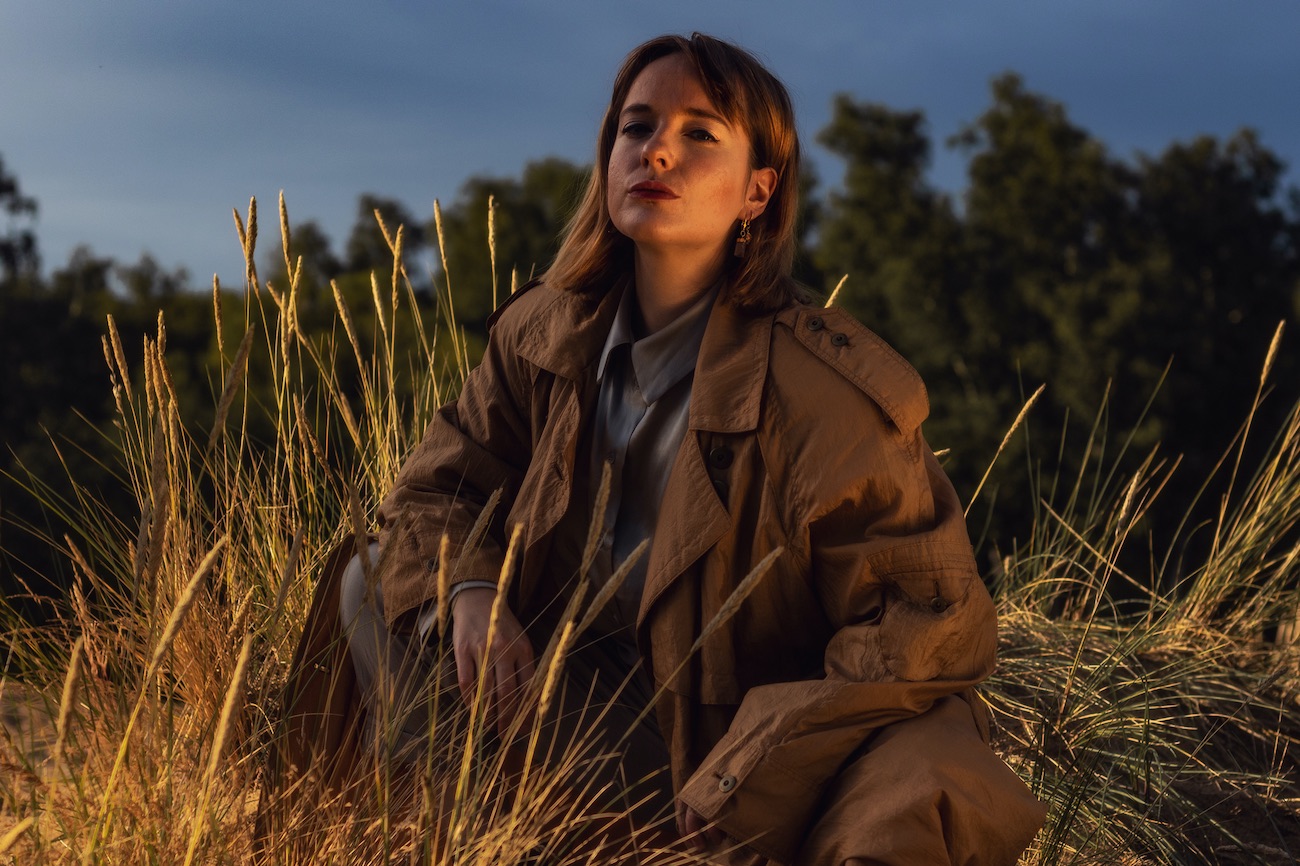
Who are some of the artists who inspired this record? I know we've talked a lot about the '80s.
Lùisa: We talked a lot about the ’80s, so it’s definitely artists like… Especially the singing part, like Sade for example. And then also, of course, something like Cocteau Twins and The Cure maybe. Even though this record is more pop and it’s not as post-rock-ish, but then also I think Talking Heads and… It is more about the overall feeling and soundscapes, even though now my record sounds very different, but also a lot of the music that is from today, but also has an ’80s sound. So something like The War on Drugs or pop records… Or pop artists like Caroline Polachek. I am a big Beach House fan – I listen to so much music, and I think I filter it all and make my own sounds, but speaking of some of the records, I would definitely name those.
You mentioned a few minutes ago about the experience of challenging yourself writing in English. What is the experience like writing in English, versus writing in German? What is the experience like writing in your second language?
Lùisa: I actually never wrote a full song in German, I think. But I feel that sometimes I also wrote in French or Italian just to have a different melody and a different perspective on life. And I think languages and foreign languages they open worlds I can’t reach with my first language and with German. And also the American pop culture and British pop culture is so rich. And I mean, you can dive into so many beautiful lyrics from other artists and be inspired by how they play with language. So sometimes it doesn’t even feel like a second language, but rather like my pop culture language, whereas I have German as my everyday language. So it’s the artistic language for me, and to have that melody and intonation of a different language is a big part of that.
I've never really thought about American pop music or British pop music in that kind of lens. As a lyrically forward artist, do you have any favorite lyrics off of this new album?
Lùisa: I think one of them is, “Too soft, too cool, too ambitious, just not enough to be a man,” which is part of “Burn Out.” And I think it has that kind of ironic feeling to it, but at the same time kind of captures that essence of New Woman as well, to always have the impression that no matter what you do, you’re kind of confronted with a double standard.
[This also applies] in the music industry. So I kind of like to have that ironic feeling to it, but also to have that confronting nature, as in “New Woman.”
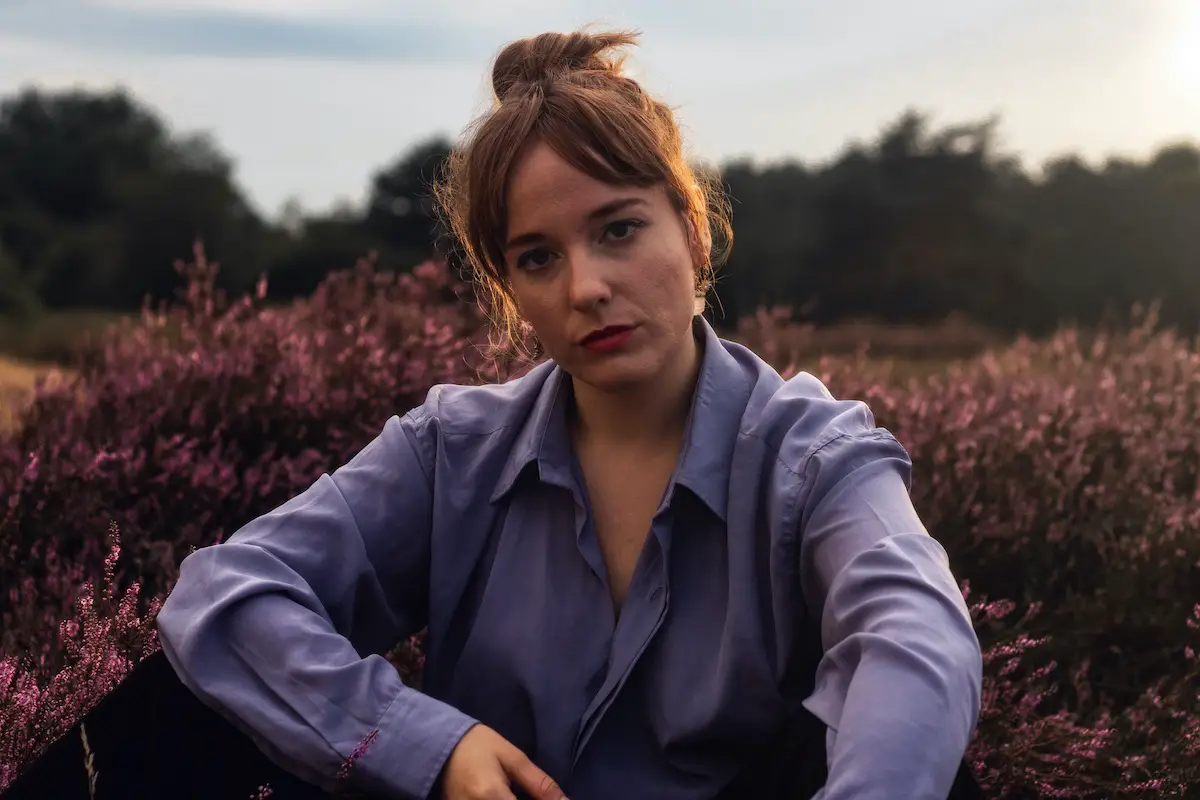
What do you hope listeners take away from New Woman?
Lùisa: I hope it would be great if people would take some inspiration out of it when they are facing dark times. Of course, you know, I’m a woman and I hope that women, maybe, feel inspired, seeing or listening to a woman being open about darker times, and maybe they feel empowered by songs as “New Woman.” And some people wrote me that they would feel empowered, so that was great. But overall, these times are so challenging and in a way, I’m not even surprised anymore, even though this is a historic moment and it’s a pandemic, and it’s crazy. But as I have been facing some challenges in the past, I always have the impression that there will be better times and there will be brighter times and that kind of resilience. I hope that New Woman tells the story, and in some moments people will feel inspired just from the journey and it would be great.
As I have been facing some challenges in the past, I always have the impression that there will be better times and there will be brighter times and that kind of resilience.
Coming to our conclusion here, who are you listening to these days that you would recommend to our readers?
Lùisa: Well, there are so much, how can I narrow it down? At the moment, I listen to a lot of Middle Kids. I don’t know if you know them, they’re an Australian band and they’re really cool. Hannah Joy is a great songwriter, so I would recommend. Even though that’s an older song, it’s called “Mistake” by Middle Kids, which is great.
Also, I can recommend some Italian disco music, which I really like, which is… It’s an ’80s singer, an Italian ’80s singer. She’s called Nada. And the song is called “Amore Disperato.” I listen to that a lot even on days where I’m really tired in the pandemic, and I feel super happy afterwards. So I can recommend that.
And do you know… I think she’s from New York. Do you know Julie Byrne? I really like her music and her style. Songs like “Follow My Voice” or “Natural Blue.” “Natural Blue,” for example, is a song which inspired the last song, “To Let You Go.” She’s a great songwriter.
Thank you, I’ll check them all out! Lùisa, with this album coming out, what is on your mind and what are your next steps? Now that this kind of era is in some ways coming to a close, in some ways just beginning, what does the future hold in store for you?
Lùisa: I’m already writing new songs, because I don’t have shows, so I have to do something, and this is what I do! And I can’t wait to play ‘New Woman’ live – I hope to be touring with it soon, that would be great. And I just want to get this inspiration from the sound that I kind of produced for this record, and carry it on and evolve it. I just want to stay on track and keep going.
That sounds wonderful. For now, I'm excited to finally see this album out in the world. I hope that whatever tour eventually materializes can find its way to New York.
Lùisa: That would be amazing! It would be a dream come true to play in New York, really.
You're always welcome here. Thank you so much for your time today, and congratulations again!
— —
:: stream/purchase “New Woman” here ::
Stream: “Burn Out” – Lùisa
— — — —

Connect to Lùisa on
Facebook, Twitter, Instagram
Discover new music on Atwood Magazine
? © Ivan Boljat
:: Stream Lùisa ::

